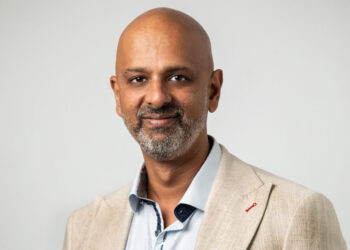Monti Datta, University of Richmond
Several high-profile celebrities were slapped with human-trafficking charges in late 2024, from music mogul Sean Combs, known as P. Diddy, to former Abercrombie & Fitch CEO Mike Jeffries. Neither has been tried yet, but in 2022 the R&B superstar R. Kelly was convicted of sex-trafficking crimes that dated back decades. He was sentenced to 30 years.
Sex trafficking, like forced labor, is a contemporary form of slavery. I am an academic who studies the mindset of slaveholders to understand more fully their rationale for what they do, in hopes of finding better ways to eradicate modern-day enslavement.

Early thinking on owning slaves
Historically, many revered figures have endorsed slavery.
“For that some should rule and others be ruled is a thing not only necessary, but expedient,” the ancient philosopher Aristotle reasoned in his book “Politics,” written around 350 B.C.E. “From the hour of their birth, some are marked out for subjection, others for rule.”
Aristotle argued that some people, such as those with mental impairments, were inferior to those with greater mental faculties. He believed this was part of the natural order. Enslaved persons, as Aristotle saw them, could be seen as a public good, to be used by the elite for the productivity of society.
This kind of thinking continued with America’s Founding Fathers, including Thomas Jefferson.
Jefferson condemned slavery and warned of its dangers, saying in 1820 that enslaving a human was like holding “a wolf by the ears.” Yet Jefferson maintained that Black people were inferior to white people and owned hundreds of slaves. He repeatedly raped one enslaved woman, Sally Hemings, fathering six children with her.
Jefferson’s thinking and behavior is characteristic of U.S. slaveholders prior to the Civil War. As scholars Elizabeth Fox-Genovese and Eugene D. Genovese explain, although many antebellum slaveholders were pious, they used faith to justify the American slave trade.

Mindset of the modern slaveholder
Today, upward of 50 million people are enslaved worldwide, trapped in sex trafficking, forced marriage and various kinds of involuntary labor.
Many enslaved persons live in Global South countries and work in industries ranging from electronics and seafood to agriculture. Their free labor provides cheap goods and services for rich countries. Their enslavers may be individuals, criminal rings or families, but big global companies are often complicit. Several Fortune 500 companies, including Apple, Samsung, Nestlé and Nike, have been charged with or admitted to using slave labor.
Academic research on the mindset of modern slaveholders is limited.
In perhaps the most comprehensive analysis to date, sociologist Austin Choi-Fitzpatrick focuses on India, where an estimated 11 million people are enslaved, many in debt bondage in agriculture, textiles, brick kilns and stone quarries.
Choi-Fitzpatrick finds that slaveholders in India tend to be paternalistic; they think of the enslaved as part of their extended family. Slaveholders buy into a myth that without their help the enslaved would be helpless, like children.
“Like a shepherd who knows his herd, we know the laborers,” one slaveholder says in Choi-Fitzpatrick’s 2017 book.
Part of this mindset likely stems from India’s caste system, in which members of higher castes believe they are superior to those belonging to lower castes.
Journalistic accounts have identified a similar mindset among South Korean slaveholders, too.
Novelist and broadcaster Marcel Theroux of the documentary series “Unreported World” reported in 2015 that scores of disabled people were enslaved on salt farms in South Korea.
South Korea’s social welfare system lags other major developed nations. People with disabilities can end up homeless on the streets, where they become easy prey for criminal networks that ensnare them into debt bondage, forced to work off an unpayable debt on salt farms.
Yet, South Korean slaveholders often believe they are doing the enslaved a favor, Theroux’s reporting found.
“My wife and I are just like real parents to him. In fact, people say we are closer to him than to our real sons who’ve left home,” one slaveholder said of his relationship with an enslaved laborer.
Slavery in the US
People are enslaved in the U.S., too. The National Human Trafficking Resource center, which documents cases of forced labor and sex trafficking, has identified 197,000 victims of human trafficking since 2007.
In a bombshell revelation published after his death in 2017, Pulitzer Prize-winning reporter Alex Tizon wrote about growing up in the U.S. with a domestic slave named Lola.
Tizon’s grandfather had purchased Lola in the Philippines as a present for Tizon’s mother, who then moved to the U.S. Lola stayed enslaved in Tizon’s family for 56 years until her death in 2011. Despite his misgivings about slavery, Tizon hailed Lola “a hallowed figure in (his) extended family.”
The U.S. has laws, including the Trafficking Victims Protection Act, that ban such behavior. But enslavers find ways to skirt the law. Coyotes and other middlemen who smuggle people into the country find a lucrative market for the forced labor of their victims.
Purchasing a slave is not expensive today. A domestic servant from Haiti can be bought for about US$50 with the requisite forged documents to bypass immigration. An Eastern European slave costs about $500.
This relatively cheap price stems from globalization along with the global population explosion. Human beings are, in scholar Kevin Bales’ words, disposable.
Survivors such as Rachel Lloyd and Holly Austin Gibbs have published their testimonies of being trafficked in Germany and the U.S., respectively. Their accounts offer some insight into the mindset of modern slaveholders.
In their memoirs, they write that their slaveholders thought of the people they enslaved as an economic commodity and cared little for their emotional well-being. Slaveholders, in their experience, were manipulative and violent. Their goal in trafficking teenage girls was simply to turn a profit.
This perspective recalls in some sense Aristotle’s thinking – that a slave is a tool to be used by another.
More research to be done
The field of contemporary slavery studies is relatively young. Data and research on modern slavery began to appear only about two decades ago, and that work focused on the systemic causes of enslavement – not on individual perpetrators.
Given the unique cultural underpinnings of slavery that vary around the world and over time, academia is still far from developing a general theory of what slaveholders think. There simply isn’t much research on their mindset.
Yet as the global population continues to explode, millions more people are likely to be enslaved in the coming years. Enslavement will continue to take familiar forms, from forced labor to sex trafficking, while the internet and social media provide new venues for online recruitment and cyber enslavement.
And if 2025 is anything like 2024, this year will see even more high-profile cases of celebrities accused of human trafficking.
I believe a better understanding of the mindset of slaveholders is crucial to combat contemporary slavery. Breakthroughs in understanding the thinking of other perpetrators, such as serial killers, has helped law enforcement better profile suspects, understand their thinking and develop better strategies and tool kits to apprehend them.
More fully understanding the people who dare to enslave another human being could give law enforcement worldwide a better shot at stopping this crime against humanity.
Monti Datta, Associate Professor of Political Science, University of Richmond
This article is republished from The Conversation under a Creative Commons license. Read the original article.











